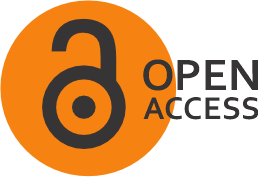Integrating Citizenship Education In The National Curriculum: Challenges And Opportunities

Published online: 1 Sep 2024
Abstract
Citizenship Education (PKn) plays a vital role in developing citizens who are intelligent, responsible and committed to the values of good citizenship. This article explores the importance of Civics in shaping the character and attitudes of citizens who can contribute positively to society and the country. By analyzing the objectives and curriculum of Civics, this article emphasizes aspects such as developing civic literacy, understanding the rights and obligations of citizens, and instilling Pancasila values as the nation's moral and ideological foundation. This article also highlights the challenges and opportunities in implementing effective Civics learning, including the importance of innovative and contextual teaching methods and the role of teachers as facilitators and role models for students. Thus, this article contributes to the discussion about how Civics can be optimized to form a young generation who is intelligent, responsible and has a strong sense of nationality.
References
Ali, Zezen Zaenudin. 2017. "Antonio Gramsci's Hegemonic Thought (1891-1937) in Italy." YAQZHAN JOURNAL: Analysis of Philosophy, Religion and Humanity 3 (2): 63. https://doi.org/10.24235/jy.v3i2.5482. DOI: https://doi.org/10.24235/jy.v3i2.5482
Arifa, Fieka Nurul. 2022. “IMPLEMENTATION OF THE INDEPENDENT CURRICULUM.” Research Center
DPR RI Expertise Body Vol. XIV,: 25–30. http://puslit.dpr.go.id.
Arisanti, Dewa Ayu Kade. 2022. "Analysis of the Merdeka Curriculum and the Merdeka Learning Platform to Realize Quality Education." Journal of Quality Assurance 8 (02): 243– 50. https://doi.org/10.25078/jpm.v8i02.1386. DOI: https://doi.org/10.25078/jpm.v8i02.1386
Barrett, Brian, and Jim Hordern. 2021. “Rethinking the foundations: towards powerful professional knowledge in teacher education in the USA and England.” Journal of Curriculum Studies 53(2): 153–65. https://doi.org/10.1080/00220272.2021.1887359. DOI: https://doi.org/10.1080/00220272.2021.1887359
Deng, Zongyi. 2021. “Constructing 'powerful' curriculum theory.” Journal of Curriculum Studies
53(2): 179–96. https://doi.org/10.1080/00220272.2021.1887361. DOI: https://doi.org/10.1080/00220272.2021.1887361
Diswantika, Noviana. 2022. “POLITICS OF EDUCATION IN INDONESIA AND ISSUES IN THE IMPLEMENTATION OF THE INDEPENDENT CAMPUS INDEPENDENT LEARNING PROGRAM” 8: 121–28.
Flynn, Susan. 2021. “Revisiting hegemony: A Gramscian analysis for contemporary social work.”
Irish Journal of Sociology 29 (1): 77–96. https://doi.org/10.1177/0791603519884201. DOI: https://doi.org/10.1177/0791603519884201
Hidayat, Rahmat. 2011. "Sociological Perspectives on Curriculum." Journal of Education and Culture 17 (2): 178–88. https://doi.org/10.24832/jpnk.v17i2.16. DOI: https://doi.org/10.24832/jpnk.v17i2.16
Hilt, Line, and Hanne Riese. 2022. "Hybrid forms of education in Norway : a systems theoretical approach to understanding curriculum change Hybrid forms of education in Norway : a systems theoretical." Journal of Curriculum Studies 54 (2): 223–42. https://doi.org/10.1080/00220272.2021.1956596. DOI: https://doi.org/10.1080/00220272.2021.1956596
Hordern, Jim, John Muller, And Zongyi Deng. 2021. “Towards powerful educational knowledge? Addressing the challenges facing educational foundations, curriculum theory and didactics.” Journal ofCurriculumStudies 53 (2): 143–52. https://doi.org/10.1080/00220272.2021.1891575. DOI: https://doi.org/10.1080/00220272.2021.1891575
Kamumu, Nardiansyah, and Tengsoe Tjahjono. 2022. "Antonio Gramsci's Theory of Hegemony in the Novel Student Hijo by Marco Kartodikromo." Gema Wiralodra 13 (1): 168–80. DOI: https://doi.org/10.31943/gemawiralodra.v13i1.212
Mirshak, Nadim. 2021. “The Muslim Brotherhood in Egypt: A Gramscian re-examination.”
Current Sociology . https://doi.org/10.1177/00113921211039273. DOI: https://doi.org/10.1177/00113921211039273
Mursidi, Agus. 2015. "Discourse of Power and Hegemony: Kiai in State Senior High Schools Collaborating with Islamic Boarding Schools." Vidya Samhita Journal of Religious Research 1 (1): 26– 38.
Mustagfiroh, Siti. 2020. "The Concept of 'Freedom to Learn' from a Progressivism Perspective in Higher Education." Journal of Teacher and Learning Studies 3(1): 141–47.
Pangestu, Dimas Aldi, and Saefur Rochmat. 2021. "Freedom of Learning Philosophy Based on the Perspective of the Nation's Founders." Journal of Education and Culture 6 (1): 78–92. https://doi.org/10.24832/jpnk.v6i1.1823. DOI: https://doi.org/10.24832/jpnk.v6i1.1823
Prime, Dedi Ilham. 2016. "Curriculum and Education in Indonesia The Process of Finding Educational Direction Which Ideal In Indonesia or Hegemony Interest Ruler Just?” Journal of Sociological Thought 2 (1): 63. https://doi.org/10.22146/jps.v2i1.23412. DOI: https://doi.org/10.22146/jps.v2i1.23412
Priyana, Efta Dhartikasari. 2022. "Development of Continuing Study Programs at MBKM
With the Application of SWOT Analysis and BMC." Serambi Engineering Journal 7 (4): 3767–77. https://doi.org/10.32672/jse.v7i4.4737. DOI: https://doi.org/10.32672/jse.v7i4.4737
Rachmat, Hartono, Syakir Muharrar. 2022. “MERDEKA LEARNING MERDEKA CAMPUS (MBKM): Semarang State University Postgraduate Arts Education Study Program Higher Education has a role as a higher education institution to create potential want to achieved How fill material Which in accordance camp.” Journal art show 1: 215– 25.
Rahmadayanti, Dewi, and Agung Hartoyo. 2022. "Portrait of an Independent Curriculum, a Form of Independent Learning in Elementary Schools." Basicedu Journal 6(4): 7174–87. https://doi.org/10.31004/basicedu.v6i4.3431. DOI: https://doi.org/10.31004/basicedu.v6i4.3431
Säily, Laura, Rauno Huttunen, Hannu LT Heikkinen, and Tomi Kiilakoski. 2021. “Designing education democratically through deliberative crowdsourcing : the case of the Finnish curriculum for basic education.” Journal of Curriculum Studies 53(6): 841–56. https://doi.org/10.1080/00220272.2020.1857846. DOI: https://doi.org/10.1080/00220272.2020.1857846
Susetyo, Susetyo. 2020. “Trouble Implementation Curriculum Independent Study Program Indonesian Language Education Study FKIP Bengkulu University.” National Seminar on Language and Literature Education 1 (1): 29–43.
Tickly, Leon. 2022. “Racial formation and education: A critical analysis of the Sewell report.”
Ethnicities 22(6): 857–81. https://doi.org/10.1177/14687968211061882. DOI: https://doi.org/10.1177/14687968211061882
Vhalery, Rendika, Albertus Maria Setyastanto, and Ari Wahyu Leksono. 2022. "Independent Campus Learning Curriculum: A Literature Review." Research and Development Journal of Education 8 (1): 185. https://doi.org/10.30998/rdje.v8i1.11718. DOI: https://doi.org/10.30998/rdje.v8i1.11718
Wayne, Michael. 2022. “Ambivalence in Gramsci's historiography of the Risorgimento.” Thesis Eleven 173(1): 93–110. https://doi.org/10.1177/07255136221141530. DOI: https://doi.org/10.1177/07255136221141530
Westbury, Ian, Jessica Aspfors, Anna Verena Fries, Sven Erik Hansén, Frank Ohlhaver, Moritz Rosenmund, and Kirsten Sivesind. 2016. “Organizing curriculum change: an introduction*.” Journal ofCurriculumStudies 48 (6): 729–43. https://doi.org/10.1080/00220272.2016.1186736. DOI: https://doi.org/10.1080/00220272.2016.1186736
Wulandari, Wiwin, and Endang Fauziati. 2022. "Freedom to Learn in Paulo Freire's Liberating Educational Perspective." Indonesian Scientific Journal 7 (3): 1–23. https:// www.jurnal.syntaxliterate.co.id/index.php/syntax-literate/article/view/6473.
Yulianto, Harry. 2022. “An Implementation of Learning Assessment Model on The Curriculum of Freedom to Learn” 2 (2): 22–34. https://doi.org/10.556442/taveij.v2i2.
License
Copyright (c) 2024 Akbar Aba, Ilmiawan Ilmiawan, Musdalifah Syahrir (Author)

This work is licensed under a Creative Commons Attribution 4.0 International License.
Permission is granted subject to the terms of the License under which the work was published. Permission will be required if your reuse is not covered by the terms of the License.

